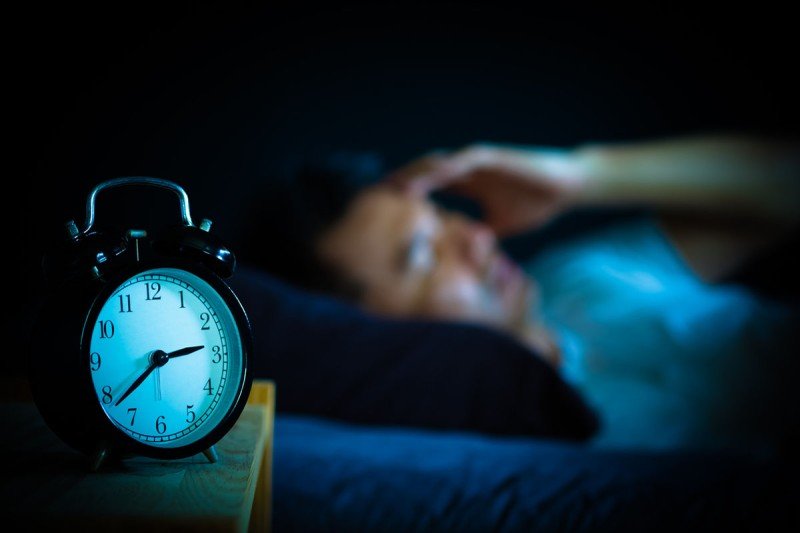

As if having cancer wasn’t hard enough, up to 50% of patients and survivors also suffer from insomnia or other sleep disturbances, says Eugenie Spiguel, an advanced practice provider at Memorial Sloan Kettering Cancer Center (MSK). A member of MSK’s Integrative Medicine team, Spiguel specializes in insomnia management and works with people who’ve been diagnosed with or treated for any kind of cancer.
Spiguel says the sleep problems faced by people with cancer aren’t any different from those of the general population — they’re just more prevalent. Cancer upends routine, which can upend sleep. Before a diagnosis, someone may have had a regular time to wake up and go to bed. But after a diagnosis, a person with cancer might take more naps or wake up anxious in the middle of the night. Sometimes people with cancer can’t sleep because of medications and side effects from treatments like chemotherapy.
But an evidence-based comprehensive program at MSK is helping people with cancer sleep better. Through cognitive behavioral therapy for insomnia (CBT-I), patients learn to identify thoughts and behaviors that interfere with sleep and replace them with healthier ones. Here, Spiguel explains how it works.
How is CBT-I different from traditional cognitive behavioral therapy (CBT)?
All cognitive behavioral therapy is based on the same principles: Our thoughts, behaviors, and emotions are all intertwined. The way that CBT-I differs from CBT is that CBT-I is very sleep-focused. We’re not just talking about sleep issues; we’re actually doing something about them. We work to undo some of the habits that are potentially contributing to the problems, and then give patients personalized sleep programs.
What are some of the habits that can prevent sleep or cause insomnia?
Things like spending a significant amount of time awake in bed, watching TV, and playing on phones. You don’t need to sit in a dark room for an hour before bed, but generally avoiding or minimizing blue light from devices is important. Also, some people with insomnia often don’t have any downtime. I always try to have patients create a buffer of an hour or two to do something relaxing. Alcohol doesn’t help: It may make you fall asleep faster, but it can disrupt sleep.
How does CBT-I help people with cancer sleep?
Believe it or not, people with cancer who have chronic insomnia may forget what it’s like to feel tired. They’re in bed, waiting for sleep to happen to them. We reset what’s called their sleep drive. We give them a planned bedtime so they don’t go to bed when they’re not tired. We give them that experience of: “Man, it is hard to stay awake. I can’t wait to go to bed.” We teach stress reduction techniques, too, so people can calm their minds a little bit if they do wake up.
How do you tailor CBT-I for each person?
We start by having patients create a nightly sleep diary for one week to track their pattern. Then we build a program based on that information. It starts very gradually. We don’t make any changes to their schedule at first. For example, if somebody is sleeping six hours a night, we would give them a six-hour sleep window to start. They get to pick the time that they want to wake up, and we keep that consistent throughout the week.
The next week, they go to bed a little bit earlier. We keep pulling back until we get to a point where they say that they feel good. Not everybody needs eight hours a night. I saw somebody recently who now sleeps a little under seven hours a night, and he said, “This is perfect for me.” I always tell patients, “Listen, if you’re happy, I’m happy.”
What does the research about CBT-I for people with cancer say?
CBT-I is the gold standard for treating insomnia. The American Cancer Society and American College of Physicians recommends that it be tried before using sleep medications such as Ambien®. I recently presented a review of 19 studies that found CBT-I reduced the time it took to fall asleep, improved the ability to stay asleep, and cut the number of early wake-ups in cancer survivors. But we still need to do more research to see if CBT-I benefits patients on active treatment and those with advanced cancer. I have a pending paper about this in the Clinical Journal of Oncology Nursing.
Why should a patient choose MSK for CBT-I treatment?
At MSK, we are cancer-focused. MSK sleep therapists work in conjunction with each patient’s care team so that all aspects of treatment are aligned. It is very helpful for me to know if someone is on treatment and what kind, so I can tailor a plan to their specific needs. We understand the various issues that people with cancer might face, normalize their fears and anxieties, and help them get back to bed.